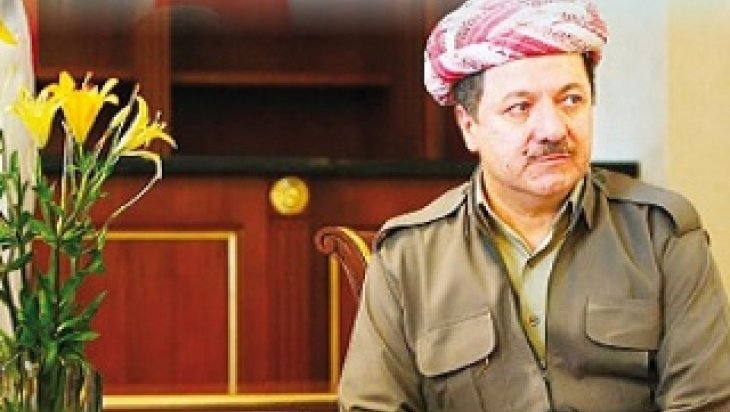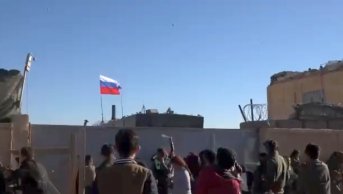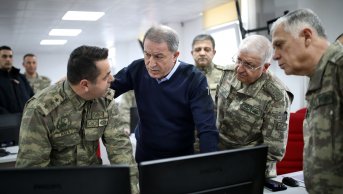Why is Turkey Against the Referendum in Northern Iraq?

A critical process that is likely to create a new conflict dynamic is being experienced in an environment where the civil war and struggle against DAESH have been swiftly going on in Iraq and Syria. The Iraqi Kurds who won de facto autonomy after the First Gulf War and had it constitutionally following the US invasion of Iraq, benefited from the opportunity offered by the fight against DAESH after 2014 and took the referendum decision on September 25, 2017 as the last step towards independence. The common belief is that this step will trigger new conflicts in the region, and harm the struggle against terrorist organizations. For this reason, no country except Israel has provided support for the referendum.
The Iraqi Kurdish Regional Government (KRG) probably has the opinion that there is no time better than today for independence. The struggle against DAESH has greatly strengthened the political and military position of the KRG. The Iraqi Kurds have strengthened their hand on the controversial territories, particularly Kirkuk, that created problems with Baghdad. By the withdrawal of the Iraqi army, almost 90% of the controversial regions were completely controlled by Kurdish forces. The Iraqi central government has lost power due to the struggle against DAESH, and increasingly become open to external support. This encourages the KRG to think that this is now the best time to take the independence step.
It can be said that the KDP and its leader, Massoud Barzani, are so interested in the referendum due to domestic political factors as well. The KRG has been experiencing a serious political and economic crisis for a long time. It can be stated that the KDP has brought up such a popular issue like independence to the agenda to cover the given crisis, tries to strengthen its position in the parliamentary election to be held at the end of 2017, and most importantly, to protect President Barzani’s seat contrary to the law. As the last cause, he may even think that even though the independence referendum is delayed he could get some guarantees over controversial territories and economic incomes, turning the current situation into a bargain. In this case the referendum will not be held but the KRG will overcome this process by creating a quite appropriate ground to declare independence in the future. However, despite all these supportive reasons, it is significant not to forget that the ideal of independence is very strong and that the KRG wants to achieve independence as a whole even though there are different views on the timing of the referendum among Iraqi Kurds. Therefore, the main reason behind the organization of independence referendum is to take the last step and to get a bit closer to the given ideal.
The KRG is most probably miscalculating the reactions of the countries in the region and the international community. According to the Iraqi Kurds, the West has substantially increased its support for them due to the struggle against DAESH and approaches the Kurds with increasing interest and sympathy. Cooperation in the fields of economics and energy with Turkey continues to get deeper. Even if Turkey reacts to the current situation, this will be because of domestic political reasons and will remain at the diplomatic level. The Iraqi Kurds are in an optimistic view that “Turkey gave green light to the independence” by flying the KRG flag at the Atatürk Airport during Prime Minister Nechirvan Barzani's visit to Turkey. Syria, the other country in the region that is likely to oppose Kurdish independence, is already struggling for survival and it is not in a situation to deal with the outside.
Despite the way the KRG grasps the situation, the situation cannot be said to be so simple. It can be assumed that the West has a positive approach in general to the Kurdish independence efforts in Iraq and backs up this process by their policies. However, the fact behind the Western interest, support and sympathy for the Iraqi Kurds after 2014 lies in their fight against DAESH on. The first priority of the West in Iraq and Syria is to overcome the DAESH threat; therefore, it is thought that the independence step will debilitate it. That's precisely why the West is opposed to the referendum; not because of the referendum decision, but its timing. Several countries such as the US, to which the KRG owes its current position and France, one of the closest friends of the Kurds for a long time, have been conducting an intense diplomacy to persuade Barzani. However, the main mistake is about Turkey's possible approach. It is obvious that Turkey wants to establish a relationship based on win-win principle with KRG. However, Turkey has never framed this close relationship in a way to risk the territorial integrity of Iraq. In recent years, Turkey has tried to abide by the "Baghdad first” principle even in crises with the Iraqi central government. It is clear that both Ankara and the KRG have gained economic benefits thanks to the bilateral relations. However, it can also be said that this gain is "vital" for the KRG while "ignorable" for Turkey. In Turkey's own economic volume, income provided from here is important, but can be put at risk in case more vital interests are on the agenda. For this reason, that Turkey will keep its reaction at a low level due to mutual interests is incompatible with the reality. Then, why does Turkey oppose the independence referendum organized by Iraqi Kurds?
Can Iraqi Kurds be a reliable partner in Turkey's struggle against the PKK?
Although Turkey has had good relations with the KRG in recent years, this cooperation has developed more in the field of economy and energy. However, the way to establish a lasting and deeper cooperation is realized through political and security cooperation. In this respect, a complete success has not been achieved. In fact, regarding the PKK issue that Turkey perceives as its most serious domestic and foreign policy problem, some developments with the potential to create threat perception have continued to take place. According to Turkey "close relations can be established with the KRG, but it is not a partner which I can always rely on in my fight against the PKK." The cooperation in security has been limited to fighting DAESH. Even about the PKK presence in Sinjar and the YPG in Syria that the KDP also perceives as a threat, coordination could not be established. More importantly, the KRG does not only consist of the KDP and Barzani. It can be signified that in the KDP regions (Arbil and Dohuk) the PKK is less influential than other places. However, the intense influence of the PKK is comfortably felt in Sulaymaniyah. The peshmergas affiliated to PUK are fighting against DAESH together with the PKK around Kirkuk. The PUK Governor of Kirkuk Najmettin Kerim allowed the PKK to settle in Kirkuk and hosted the PKK in the Governor's Office. It should not be forgotten that even the leader of the KDP, Massoud Barzani, who is close to Turkey, does not consider the PKK as a terrorist organization and celebrated the PKK for its struggle against DAESH in Mahmur. In the face of such a conjuncture, the threat perception in Turkey is natural. It is a fact that good relations established with the KRG in the last years provided benefits to Turkey both economically and politically, and if there is a sanction option available at the moment for Turkey, it is a result of these policies. However, it should not be forgotten that the KRG can naturally never be an actor Turkey can fully rely on in its fight against the PKK.
The emergence of new conflict dynamics in Iraq and the Turkmen position
KRG also holds the independence referendum in controversial areas beyond its borders such as Kirkuk, legally attached to Baghdad. The controversial regions extend from Talafer on the Turkish border to Mandali on the Iranian border. The given region has two important characteristics. First of all, there is a heterogeneous society structure where Turkmens, Arabs, Kurds, Sunnis and Shias live together. The second is that it is rich in terms of natural resources. Participation of controversial regions in the independence referendum will naturally trigger local conflicts among different ethnic and sectarian groups, as well as giving rise to a wider quarrel between Baghdad which continues to claim sovereignty over these regions and KRG. This is an undesirable situation for Turkey that looks for stability in Iraq and Syria as soon as possible. The Turkmen position in these conflict dynamics is extremely sensitive. Unlike the Kurds and Arabs, they do not have any armed force, and since the 2003 Invasion, they have become the victims of every clash that has taken place among the military parties. As seen before, in the tense atmosphere stemming from the referendum, the peshmerga forces have recently been directed towards Turkmens that are in weaker position instead of the Hashd al-Shaabi which is the main threat for itself and attacked the building of the Turkmen Nationalist Movement in Kirkuk. Turkey, on the other hand, feels closer to Turkmens and support them. The approach of the KRG and peshmerga to Turkmens is certainly not in a position to satisfy Turkey. The PKK presence in Kirkuk is another issue. The PKK has also been used from time to time against Turkmens whom it saw closer to Turkey. Therefore, Turkey thinks that if Kirkuk is included in the independence referendum, Turkmens will suffer great damage in a clash environment. The long-term risk perception is that the Kirkuk Turkmens may lose their identity under the KRG administration. The major example is Arbil. In Arbil, an important Turkmen city in the past, the Turkmen identity was tried to be gradually removed. The historical centre of Arbil, where the Turkmens lived, was evacuated and it turned into a touristic area. For these reasons, Turkey argues in parallel with the demands of the Kirkuk Turkmens that Kirkuk should remain under the control of the central government. Since, the presence of Baghdad can create a balance against the Kurds which are demographically, politically and militarily very powerful in Kirkuk, and the pluralistic structure in the city can be maintained.
The possibility for Kurdish structure in Iraq to improve its relations with YPG territories in Syria
Turkey considers the KRG's independence referendum in connection with the developments in Syria. According to the Turkish perception, a line is being formed on its southern border, constituting threat for Turkey, and this threat is not because it is a Kurdish line but because a significant part of it is controlled by the PKK. The perception of threat created by the independence process in Iraq is that it is possible for the various Kurdish actors to solve the problems among themselves and act together towards Turkey around common ideal in the long run. In Syria, there is a de facto autonomous region under the PKK control. It is uncertain whether or not this structure will gain political status, but it is possible. In such a situation, it is obvious that there is no obstacle before any cooperation between a possible independent state in Iraq and the federal structure in Syria. One of the key milestones on the road to the current Kurdish independence process in Iraq was that the US hosted and brought together the KDP and PUK which were in civil war, and made them sign the Washington Agreement. Even though it is thought to be impossible for KDP and PKK to meet as they have a quarrel over Sinjar and Syria, there are no obstacles before them to do it because of some factors such as the pressure from the Kurdish public and the Western guidance. What is more, as mentioned above, the KRG is not merely formed by the KDP. The PUK and even the Gorran Movement to certain degree explain that they plump for the YPG in Syria, and they provide military and economic aid to it. It is unrealistic to expect Turkey to develop an opportunity-based approach about its most vital problem in the face of such a stance.
Concern regarding the possibility of the change of boundaries to create domino effect
One of the main principles of Turkey's policy on Iraq and Syria is the protection of territorial integrity. It is not a secret that Turkey worries whether a change of border in any of the countries in the region may cause a domino effect and could spread to itself. Iraq, Iran and Syria share this concern as well. That is why Iraq, Iran and Turkey can meet on the basis of protection of status quo even in an environment where the relations are the worst. There are those in Turkey who think that this perception is wrong and that it is not right to move with the fear of division for a great state like Turkey. It is fair to think this way. Pursuing a policy in the region based entirely on this concern will obviously harm Turkey. But the idea that border changes in Iraq will not adversely affect the borders of the countries of the region is too optimistic. Especially when there are regional and non-regional powers that have the potential to use this card against other regional countries. For example, it cannot be argued that Israel, the sole supporter of the KRG's independence referendum, does not see the Kurdish card as a trump to be used against Iran or Turkey in the future...
Possible Turkish reaction
By the time this article was written, it was not certain whether the referendum would be held or not. Masoud Barzani, who has encountered a huge opposition that he did not expect but has not taken a step back either, gives the signals of postponing the referendum by turning this process into a bargain and making some gains. This uncertainty will probably continue till the last day. If Barzani could make some gains, he could find a way out by saying to the people which he had imposed nationalist sentiments and encouraged for pouring out into the streets for a long time that “look, we have achieved gains and are now in a stronger position”. Despite this low probability, it is most likely that the referendum will be held, and in this conclusion part what kind of approach Turkey may adopt in case the referendum is held will be discussed.
As stated in the first part, it is not realistic to try to explain the Turkish stance against the referendum by internal balances. For this reason, contrary to the expectations of the KRG, Turkey may bring up a concrete package of sanctions to the agenda. Turkey, through the announcements made by the very authorities, has clearly expressed that it is opposed to the referendum and that "the KRG will pay the price" if it insists upon the independence. The Turkish Armed Forces has launched a military drill in Silopi where there is already an intensive military deployment due to the PKK presence in Sinjar. Despite this step that warns of a military response, the means of economic sanctions will be brought into question in the first stage as a part of the process of escalating the crisis. These sanctions will have a serious impact on the KRG. It is a landlocked state and its alternative exit points are Turkey, Iran, Iraq and Syria. Iraq and Syria are not in a situation to be alternative at the moment. Exerting economic sanctions by Iran and Turkey in coordination will make it more difficult for the KRG, which is already in a crisis, to survive. From an economic standpoint, it can be said that Turkey has more arguments than Iran. However, Turkey is likely to think about the use of force in addition to economic sanctions, and if this happens, it will probably be coordinated with Iran and Iraq. No one is expecting a ground offensive or air strike directly aimed at KRG. However, as pointed out above, there is a growing PKK presence in Sinjar and even in the Peshmerga-controlled areas. These can be a subject of an airborne targeting. On the other hand, when it comes to the military point of view, Iran has more tools. Iran can very comfortably resort to the use of force against the peshmerga with its influence on the Iraqi army, or through the Hashd al-Shaabi forces which is dependent on Iran or under its influence. Correspondingly, Hashd al-Shaabi Commander Abu Mehdi al-Muhandis entered Kirkuk with a large military convoy in such a critical conjuncture where the referendum is approaching. In the same way, the Iraqi army also launched an operation to liberate the Havice district in Kirkuk from DAESH. The Iraqi army and Iran will thus be able to enter Kirkuk, where they had to withdraw completely in 2014, from the southwest, and give the Kurds the message that "you cannot take a unilateral step in Kirkuk". Turkey's sensitivity about the Kirkuk issue is obvious. Particularly, in case of a threat towards the Turkmens, it is possible for Turkey to bring up the option of use of force to the agenda more quickly.
The article was published in Star Newspaper with title of “Türkiye Kuzey Irak’ta Referanduma Neden Karşı?” on 24 September, 2017.










